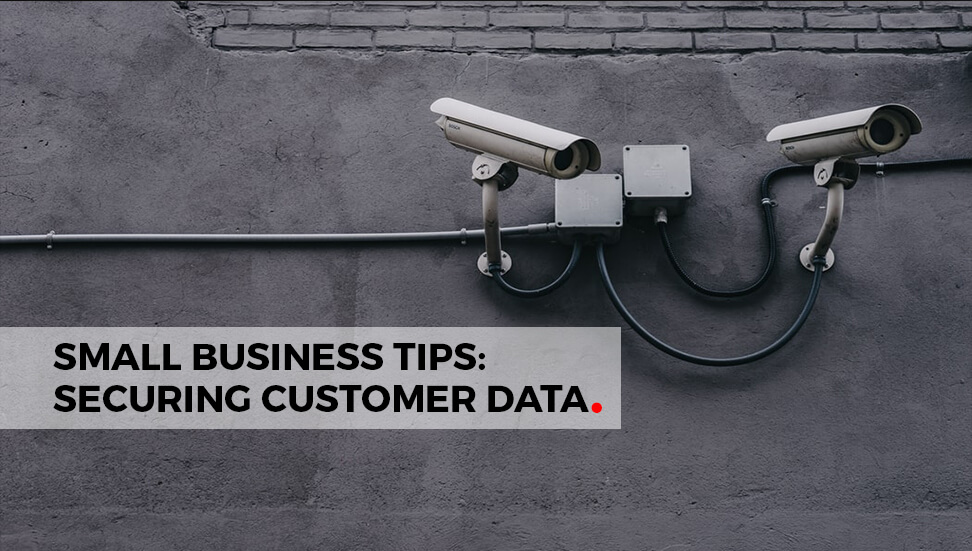Alongside the rise of technology has been a rise in cybercrime. It influences various aspects of our lives including small businesses and their customers. Cyber-attacks don’t just affect multinational corporations, small businesses are affected as well. Protecting customer data is now an integral part of modern business dealings. Today we are going to discuss exactly what you need to know about data breaches, its impact on your business, and how you can protect your customer’s data. Keep reading to hear our top small business tips for protecting your customer data.
What is a data breach?
A data breach, which is also known as information leakage, data leak, or unintentional information disclosure refers to the viewing, stealing, or release of private or secure information to an unauthorized environment or person. It is an act that is carried out intentionally or unintentionally. It takes place when a cybercriminal breaks into the data source of an entity and by accessing its local computers physically or remotely and extracts information that is sensitive to that entity.
How can it hurt your business?
Businesses that suffer from data breaches do so in numerous ways. Some of them have been outlined below:
Financial repercussions
Victimized businesses must handle the financial repercussions of a data breach. Businesses may be required to compensate affected customers in addition to upgrading their security systems. This can be a costly process but it is necessary to rebuilding trust between the business and consumers! The financial fiasco does not end there, the affected company may be fined for not sufficiently protecting customer data.
Reputation damage
When a data breach occurs, the confidence of the customers placed on the brand is lost, as they no longer feel that they have their data in secure hands. This also applies to potential customers who will lose interest in dealing with a brand that may put their information at risk. These lingering effects can affect a brand for years. In fact, 60% of data breaches result in the closure of the small business within 6 months.
Identity theft
The impact of a data breach is directly tied to the type of information that is stolen. If hackers access the personal and financial details of your customers, they may be the victims of further crimes such as identity theft.
How to avoid a breach:
These practical small business tips will help you avoid data breaches and protect your customer data:
Limit the amount of data you collect
One of the approaches you can take is to limit the impact of a breach. This involves limiting the amount of data being collected from your customers. Only collect data that is absolutely necessary to complete your business dealings. In the event of a breach, this will limit the impact on you and your customers. Additionally, when you are done using the data, it is best to destroy it.
Insist on strong passwords
Don’t suffer a data leak due to a weak password! When you or your customers are creating passwords weak password, you should require the admins to use strong passwords and regularly change them. This is a very cheap method to keep your business secure. Strong passwords have at least eight characters, upper and lowercase letters, numbers, and symbols. Additionally, you can consider using a two-factor authentication process, this is usually done with an email address or texted code.
Update your Software
Updating your computer software is generally pretty low on the to-do list, however, this is a vital aspect of cybersecurity. Software updates often include important security updates and patch potential security hazards. This is a low-cost way to keep your data safe!
Use SSL authentication
As a small business owner, ensure that all the transactions taking place on your internet site are secured with the use of SSL/HTTPS. If you choosing an eCommerce platform to ensure that, it supports SSL secured transactions. This gives you the opportunity to carry out secure financial transactions without sending sensitive information in plain text. An SSL certificate does even more as it secures your entire website instead of your payment gateway alone. This will go as far as ensuring that every detail coming through the website including email addresses are secured. Apart from securing the details across your business website, a search engine such as Google pays closer attention to such sites over time as a rank factor.
Protecting customer data is essential in keeping every business alive, apart from the cost of a data breach to the business; its customers can suffer tremendously. Every business looking to keep its most prized assets, which is its customers will go the extra mile in protecting its data.
Are you interested in more small business tips? Our blog features more than 250 articles that can help you improve your marketing strategy. Click Here to learn more.






























